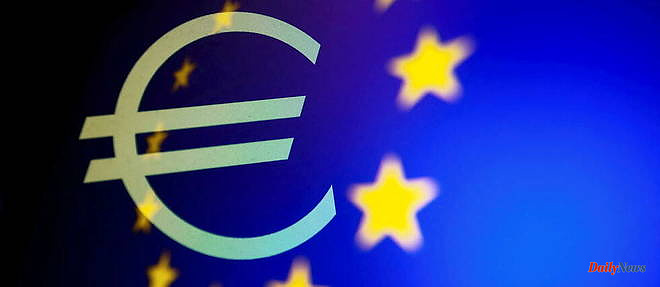The risk of a new banking crisis did not influence the European Central Bank (ECB), which decided on Thursday for a new rate hike of half a percentage point in order to fight inflation, judging that the banks of euro area were strong and "resilient". Euro guardians, however, are cautious about further monetary tightening and have backed away from their pledge to raise rates further "significantly" in the coming months.
The first major central bank to make a decision since the onset of the stock market turmoil, the ECB engaged in a veritable balancing act ensuring that there were no "compromises" to be made, neither on financial stability nor on that of prices. This firmness somewhat reassured the European stock markets which closed higher: Paris gained 2.03%, Frankfurt 1.57%, Milan 1.38% and London 0.89%, gains however lower than their losses of the day before.
Since last Friday, the bankruptcy of SVB and two other US regional banks has raised the specter of the 2008 financial crisis that destabilized the global economy. On Wednesday, it was the Swiss giant Credit Suisse which suffered the worst session in its history on the stock market after a panic movement linked to doubts about its solidity. But the banking sector "is currently in a much stronger position than in 2008", assured Christine Lagarde to the press, adding that the ECB would act "if necessary".
In the US, the Fed will face a similar dilemma next week at its next rate meeting. Rate hikes are a double-edged sword for commercial banks: on the one hand their new loans earn more interest, on the other their assets on the balance sheet may suffer, with an increased risk of default among borrowers. more fragile and a mechanical drop in bond prices in the portfolio, which was fatal for SVB.
The Frankfurt institution also took into account the lull in the stock markets after efforts on both sides of the Atlantic to restore investor confidence in the banking sector. American media reported Thursday on the possible intervention of large American banks to help the regional establishment First Republic, another bank weakened in recent days. This hypothesis made the New York Stock Exchange rebound.
In its new forecasts published Thursday, inflation is expected at 5.3% in 2023 – against 6.3% in December – then 2.9% in 2024 and 2.1% in 2025, very close to the objective of 2%, suggesting that the ECB may opt for lower rate hikes in the coming months. “Today's decisions could mark the start of the final phase of the ECB's tightening cycle […], commented Carsten Brzeski, economist at ING.












